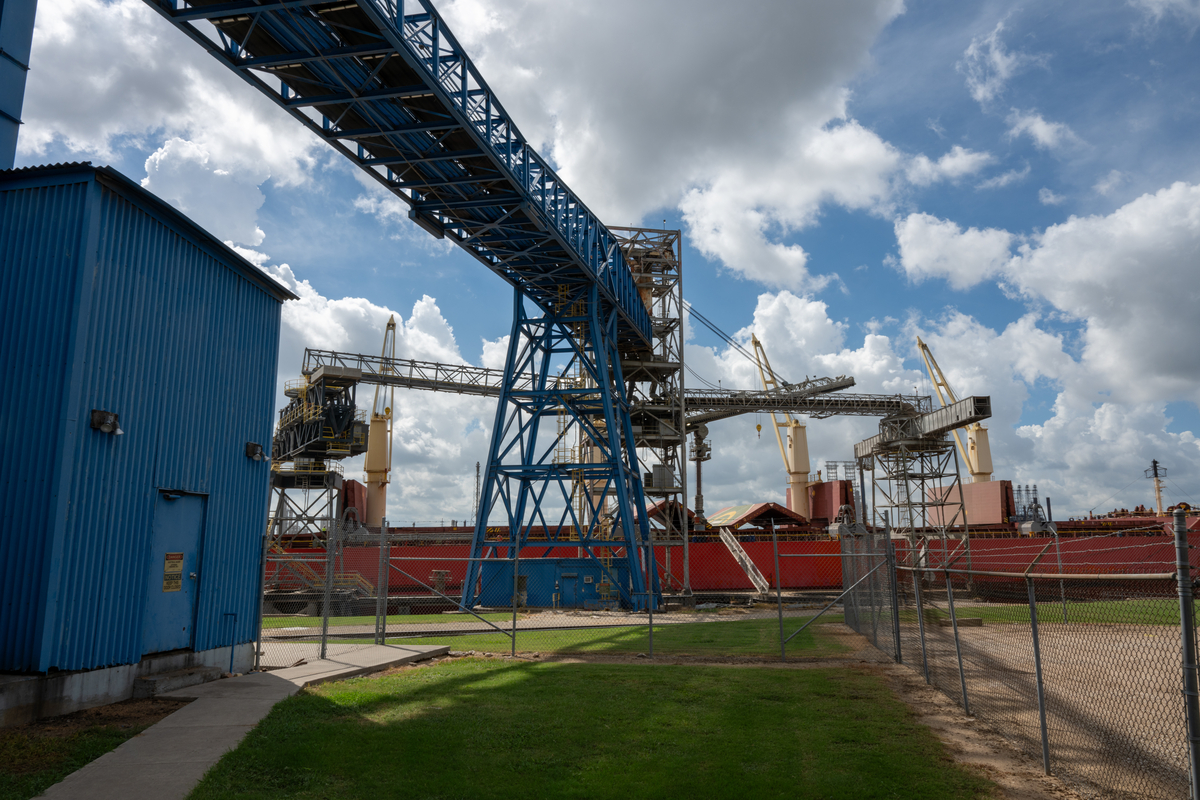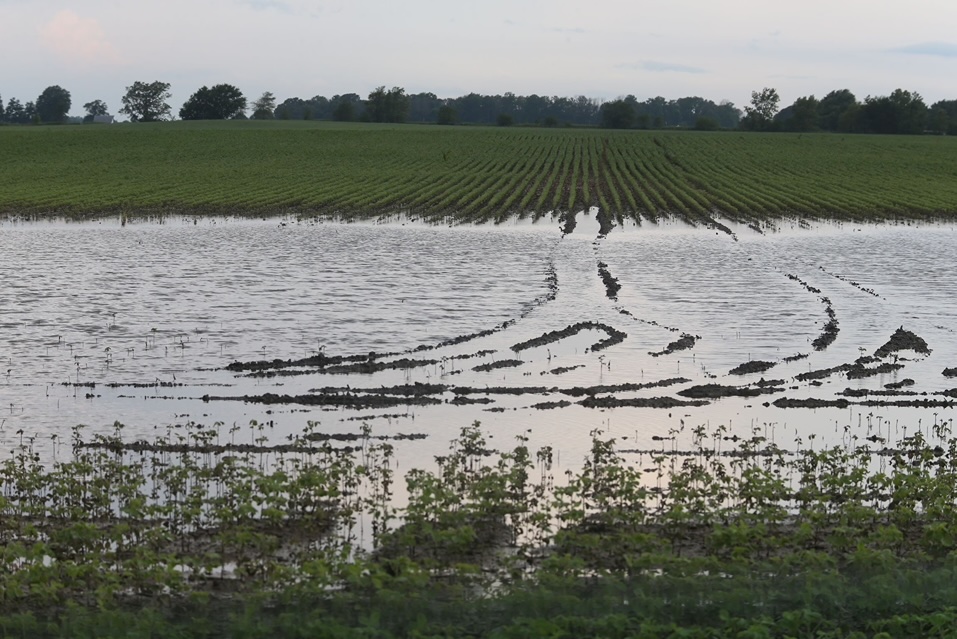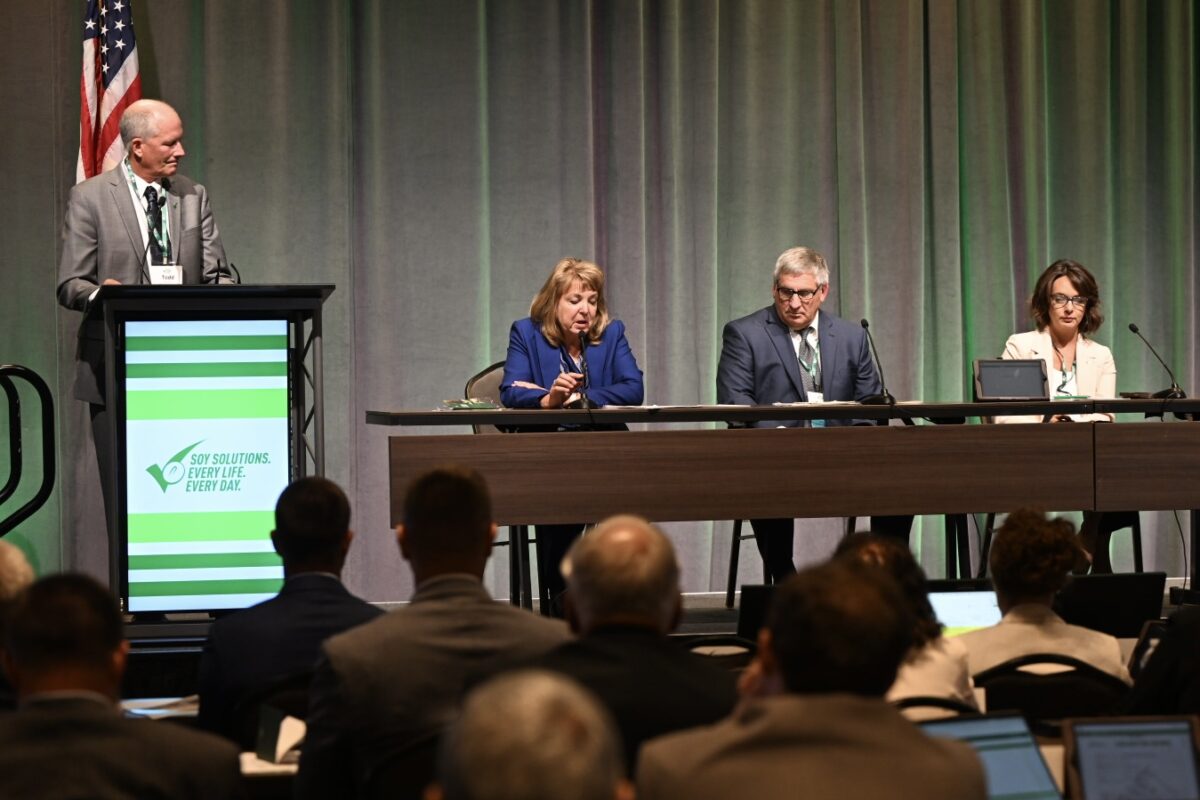Checkoff Check-In: A Glimpse Into Minnesota Soybean

The Minnesota Soybean Research & Promotion Council is the state’s official Qualified State Soybean Board and plays a crucial role in supporting Minnesota soybean farmers. MSR&PC represents the interests and needs of Minnesota’s soybean industry within the framework of the national soy checkoff program.
We sat down with Tom Slunecka, CEO of MSR&PC, to gain insight and a timely glimpse into the organization’s events, partnerships and priorities. MSR&PC is committed to increasing farmer profitability through the wise investment of checkoff dollars. Its partnerships and investments have worked to benefit all Minnesota soybean farmers.
MSR&PC partnered with Goodyear® Tires and Skechers® shoes. Can you share details about this partnership, and what were the outcomes?
We partnered with Goodyear to launch the “Driving Soy” campaign, which promoted the use of soy-based Goodyear tires to highlight value-added products. As part of the campaign, MSR&PC donated sets of Goodyear’s soy-based tires to local law enforcement agencies throughout the state. The tires, Goodyear’s Eagle Enforcer® All Weather™, were designed specifically for first responder vehicles stationed in all-season climates like Minnesota. For Skechers, we launched the “Stepping Up” campaign in 2022. For this campaign, Minnesota farmers and the soybean checkoff donated nearly 3,000 pairs of Skechers soy-based shoes across 120 Minnesota health care facilities.
We were excited that something like this came to fruition and that we were able to provide shoes and tires to first responders in our local communities. It’s a great investment in checkoff dollars to have products that we can talk to consumers about. These types of products really help grab consumers’ attention and show consumers a side of agriculture they may not be familiar with.
None of this would have happened without the United Soybean Board’s partnership with Goodyear and Skechers.
What are some of the top priorities of Minnesota Soybean?
We’ve been working toward a new innovation center in Minnesota. The Ag Innovation Campus is really the crowning achievement of decades of work. The center is focused on developing new types of products that come from new types of soybeans and other oils. Once fully operational, the facility is estimated to crush 240 tons of soybean meal daily, which equates to an intake of eight semi loads each day. The Ag Innovation Campus is certainly at the top of the list of priorities that we support.
Another exciting project is Plasma Blue. We’ve worked on this technology for over five years, and we’re just about to bring it to full commercialization scale. With partial support from the United Soybean Board, this is a completely new technology that will convert all types of oils into higher value products as simple as biodiesel but as complicated as elastomers and polymers. It’s an environmentally friendly, more complete process, driving the reaction with electricity as opposed to natural gas.
We also had success this year selling non-GMO high oleic seeds that have been in development. This, too, has taken years of research, and we made the first sale of that seed this year. The varieties that work in Minnesota work all across the northern tier of the U.S., and we’re excited about the demand from other regions.
Part of USB’s mission is to create value for U.S. Soy farmers by investing in research. Are there any research investments to highlight that MSR&PC is participating in?
One of our most exciting and interesting investments is our breeding program through the University of Minnesota. We are looking at soybeans that have compositional traits as opposed to yield traits. We look for further and greater diversification of the soybean crop, and soon, we’ll have three or four completely new types of soybeans that will help create specialty-type products.
What are the most impactful initiatives in your state that will assist farmers?
We’re proud of our nationally recognized, award-winning research seminars. We facilitate roundtable discussions between farmers and experts from a wide range of agricultural industries like grain handling, seed and chemical companies, and even researchers involved in new product development interested in using soy-based products. We try to bring together a variety of people that are impacted by anything that Minnesota Soybean does and try to build that collaboration.
What makes your state checkoff unique?
In Minnesota, the extension service is an important tool for farmers to receive technical information. We invest in that system with the University of Minnesota. We also have our county program, which is important because local county organizations help us to spread news and create awareness. We have a spiderweb of connectivity, which works to help us communicate more effectively with farmers.
How does your state work in partnership with the national soy checkoff, and what value does the national soy checkoff bring to your state?
Our relationship with USB is a mutually beneficial partnership. USB has great ideas. We have great ideas. Together, we can do more.
USB supports larger initiatives that we couldn’t do alone as a state. Nothing is anything until it’s local — but to get it local, you’d often need to start from the top and work your way down — and USB’s ability to invest in these ideas is crucial. Then it trickles down into the state, so oftentimes ideas from us bubble up through USB as well.



